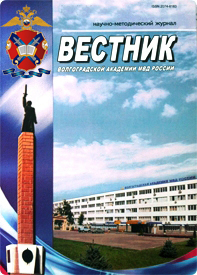The article outlines the topical issues of the definition of an object of proof in the differentiation of the contemporary criminal procedure in Russia. The authors express their opinion on the issue of defining an object of proof in a criminal investigation where certain peculiarities are found, such as simplification or complication of a criminal procedural actions. The analysis of the criminal procedural law in Russia from the Charter of criminal proceedings dated by 1864 to acting Criminal Procedural Code of the Russian Federation revealed the crucial circumstances that form the basis for an object of proof as seen by the legislature. These are the establishing both of a criminal act commission and guilt. The authors explain the traditionally unchanged position of the legislature by the fact that the object of proof in the criminal procedure does not exist on its own isolated from other legislative institutions. It is an instrument capable of bringing into action the mechanisms that can help fully exercise the rights and guarantees of the participants of proceedings and solve a criminal case as such by passing a lawful, appropriate and just sentence.
the object of proof, differentiation of criminal procedure
1. Zayceva E. A. Neprocessual'naya forma ekspertnyh issledovaniy // Sudebnaya ekspertiza. 2011. № 4.
2. Kruglikov A. P. Dopolnenie UPK RF novoy glavoy o doznanii v sokraschennoy forme i nekotorye problemy differenciacii ugolovnogo sudoproizvodstva // Rossiyskaya yusticiya. 2013. № 7.
3. Michurina O. V., Himicheva O. V. Predmet i predely dokazyvaniya pri proizvodstve doznaniya v sokraschennoy forme: zamysel zakonodatelya i prakticheskiy rezul'tat // Rossiyskiy sledovatel'. 2016. № 5.









